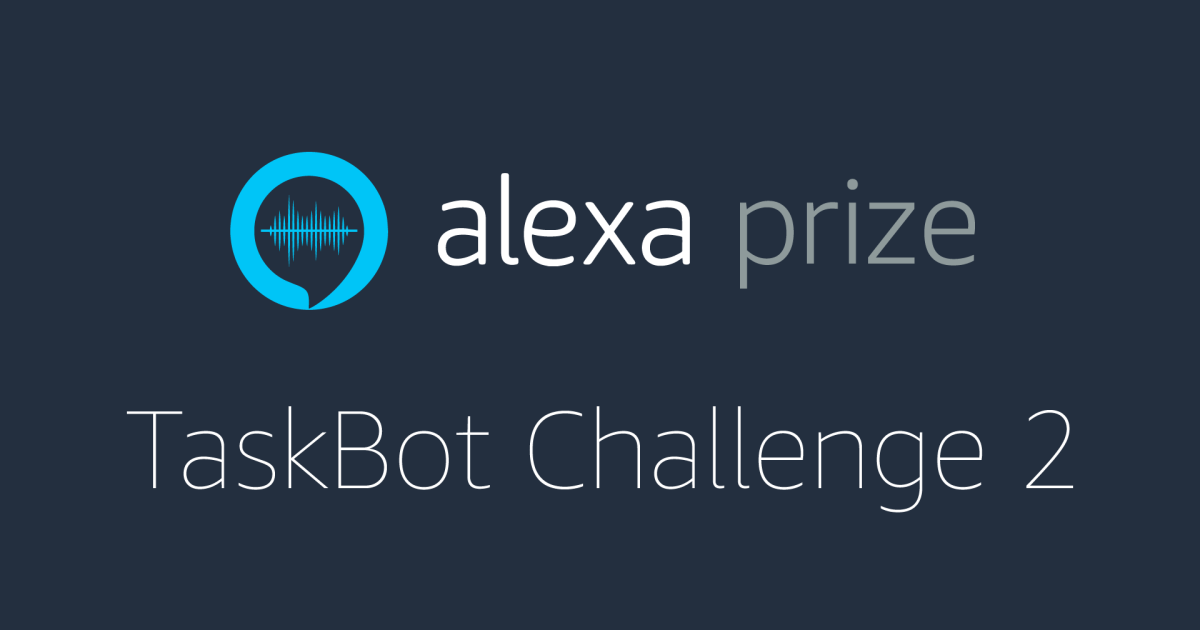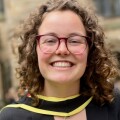Amazon today announced that ten teams from around the globe have been selected to participate in the Alexa Prize TaskBot Challenge Year 2, a university challenge focused on developing multimodal (voice and vision) conversational agents that help customers complete tasks that require multiple steps and decisions.
The Alexa Prize is a flagship industry-academia collaboration dedicated to accelerating the science of conversational artificial intelligence (AI) and multimodal human-AI interactions.
“Prize competitions provide an agile science experimentation framework for researchers and students, encouraging them to explore transformational ideas at the edge of what is achievable,” said Reza Ghanadan, senior principal scientist at Alexa AI and head of the Alexa Prize. “We have developed the CoBot platform and tools to lower the barriers to AI innovation for both the academic research community and students interested in conversational AI assistants. These tools allow students to quickly implement their solutions at scale in the real world with Alexa, and then observe, evaluate and improve their research results using feedback from Alexa customers.”
The teams selected for the challenge, which began in January, have five returning participants – including the top three in the most recent challenge – and five new universities.
|
Team |
University |
Faculty adviser |
|
Will return |
||
|
TWIZ |
NOVA School of Science and Technology |
João Magalhães |
|
Invoke BOT |
Penn State University |
Rui Zhang |
|
Tacos 2.0 |
Ohio State University |
Huan Sun |
|
GRILL |
University of Glasgow |
Jeff Dalton |
|
Maruna |
University of Massachusetts Amherst |
Hamed Zamani |
|
New |
||
|
BoilerBot |
Purdue University |
Julia Rayz |
|
DiWBot |
Rutgers University |
Matthew Stone |
|
Wise |
University of California, Santa Cruz |
Xin (Eric) Wang |
|
ISABEL |
University of Pittsburgh |
Malihe Alihani |
|
PLAN-Bot |
Virginia Tech |
Ismini Lourentzou |
Prizes for overall performance in the competition will be $500,000 for first place, $100,000 for second place and $50,000 for third place. These prizes will be awarded to the students in the teams with the best overall performance.
“I’m excited to see new teams join the second year of the competition, along with returning teams who, by competing again, signal to us that they found value in the TaskBot challenge,” said Yoelle Maarek, vice president of research and science for Amazon Shopping.
“We expect these talented graduate students to continue to surprise us, as well as Amazon customers, this year. Connecting academia, Amazonians, and actual customers experimenting with taskbots is a winning combination to keep pushing the boundaries of science in conversational AI for Alexa to delight and ease the lives of millions of customers.”
The Alexa Prize is a competition for college students dedicated to advancing the field of conversational AI. Launched in 2016, the program was created to recognize students from around the world who are changing the way we interact with technology.
TaskBot Challenge 2 teams are working to solve one of the toughest problems in conversational AI – creating next-generation conversational AI experiences that delight customers by meeting their evolving needs as they perform complex tasks. This challenge builds on the foundation of the Alexa Prize to provide universities with a unique opportunity to test cutting-edge machine learning models with actual customers at scale.
TaskBot is the first conversational AI challenge to incorporate multimodal customer experiences, so in addition to receiving verbal instructions, customers with Echo Show or Fire TV devices can also be presented with step-by-step instructions, images or diagrams that enhance task guidance.
This year’s challenge has been expanded to include more hobbies and activities around the home. Participating teams were asked to suggest interesting ways to incorporate visual aids into each turn of conversation when a screen is available. Innovative ideas for improving the presentation of visual aids as well as coordinating visual and verbal modalities were part of the team selection criteria.
Each university selected for the challenge receives a $250,000 research grant, Alexa-enabled devices, free Amazon Web Services (AWS) cloud computing services to support their research and development efforts, access to Amazon researchers, the CoBot (conversational bot) toolkit, and other tools such as automated speech recognition through Alexa, dataset generation, and conversational design, neural detection, neural detection, neural detection, Alexa Prize team.
“Alexa, let’s work together”
The university teams’ taskbots will be available for Alexa customers to engage with in May 2023, with a finals event held in September and winners announced later that month.
As with the previous challenge, Alexa customers can interact with Teams’ taskbots when they become available in May by saying, “Alexa, let’s work together.” Until then, “Alexa, let’s work together” will lead you to conversations with the past 2022 challenge winners and the Alexa Prize TaskBot.
After beginning the interaction, Alexa customers then receive a short message informing them that they are interacting with an Alexa Prize university taskbot, before being randomly paired with one of the participating taskbots.
After completing the conversation with the taskbot, which customers can do at any time, the customer is prompted for a verbal rating, followed by an opportunity to provide additional feedback. The interactions, ratings and feedback are shared with the teams to help them improve their taskbots. Customer ratings are also used to determine which college teams advance to the semi-finals and finals.
Success in the previous TaskBot Challenge required teams to tackle many difficult AI obstacles. The challenge required the fusion of several AI techniques, including knowledge representation and inference, common sense and causal reasoning, and language understanding and generation.
The “GRILLBot” team from the University of Glasgow won the TaskBot 1 challenge and earned a $500,000 prize for its achievement. Teams from NOVA School of Science and Technology (Portgual) and Ohio State University won second and third place, respectively.
Research papers from the Amazon Alexa Prize team and each of the competing teams can be viewed and downloaded here.
Alexa Prize Taskbot Challenge Finals | Amazon Science
















